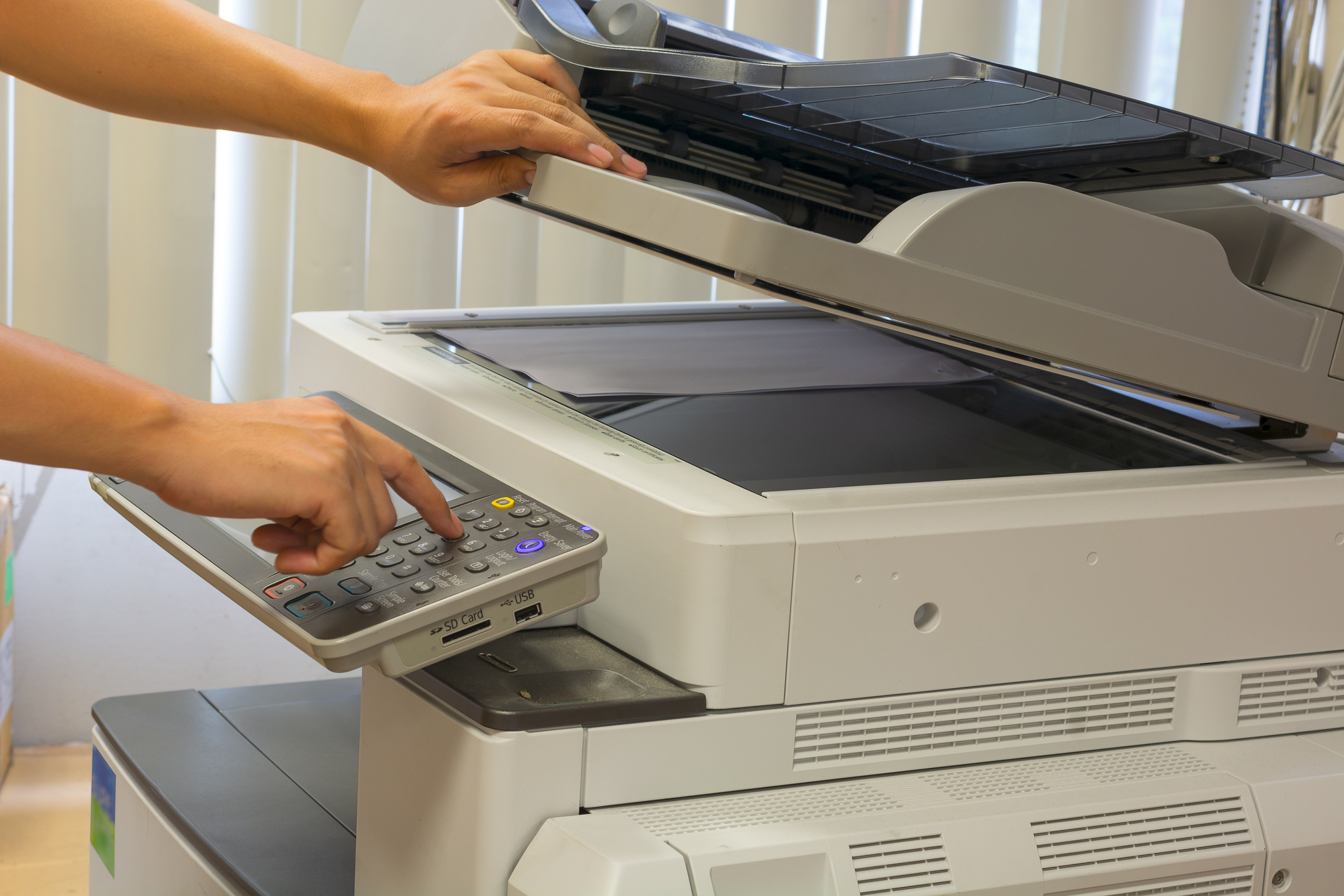Why some workplaces still use old technology
What are the reasons some offices are stuck in the past?


A free daily email with the biggest news stories of the day – and the best features from TheWeek.com
You are now subscribed
Your newsletter sign-up was successful
In an era of constantly emerging technologies, some offices seem to be stuck in the past, with devices like fax machines and landline telephones often ubiquitous in a sea of cubicles. When the rest of the world seems to have moved on, why do some offices insist on using antiquated technology?
What old technology is still found in the workplace?
While the aforementioned landlines and fax machines are probably the first things that come to mind, there are many relics of the past in offices, especially on computers. Microsoft Windows, an operating system nearly 40 years old, "still holds an 83% market share for personal computers," CNBC reported. Then there are the computer programs themselves. While platforms like Google Drive and cloud-based software continue to emerge, Microsoft Office, which has been around since 1990, "is used by over a million companies worldwide," according to Financial Post.
It's not just software either. The Chicago Sun-Times reported in 2020 that some members of the city's police department were still using typewriters instead of computers. A police spokesperson told the Sun-Times that "dozens of types of forms are still filled out with typewriters, including missing-person forms, towed-vehicle forms and search-warrant logs" and that "typewriters are located 'throughout the department.'"
The Week
Escape your echo chamber. Get the facts behind the news, plus analysis from multiple perspectives.

Sign up for The Week's Free Newsletters
From our morning news briefing to a weekly Good News Newsletter, get the best of The Week delivered directly to your inbox.
From our morning news briefing to a weekly Good News Newsletter, get the best of The Week delivered directly to your inbox.
Many doctors' offices and hospitals still use pagers, a technology that has been around since the 1950s, to keep in touch with physicians. A study in the Journal of Hospital Medicine cited by Health Tech found that "49% of respondents receive patient-care-related messages most commonly by pager."
Even government agencies use outdated technologies. A 2019 report from the U.S. Government Accountability Office found that many agencies "used outdated code" and "relied on hardware and software that is no longer supported by the manufacturers or had major security risks." Another shocking revelation was that the Defense Department still ran the nation's nuclear arsenal program on floppy disks, which haven't seen widespread usage since the 1990s. The department updated its computers in 2019 so that they no longer use floppy disks. They are still used in several other industries, though.
Why do workplaces use this technology?
The answer can often depend on the technology in question. The ubiquity of fax machines, for example, can be traced to "a mishmash of regulatory concerns, fears about digital security, and plain old resistance to change," The Atlantic reported. Police departments, for example, "remain heavily reliant on fax for routine operations, such as bail postings and return of public records requests," the outlet added, while other office environments may believe "that hacking computer systems were easier to hack than fax machines and that computer hacks were more damaging."
Part of the reason that landlines are still preferred in offices is that they "offer a level of reliability and voice quality that can't always be found with cellphones," the Houston Chronicle reported. While everybody has a cellphone these days, many offices are in "areas that don't have good cell reception or broadband access," the Chronicle added, and landlines help a business "maintain professionalism and credibility," workspace solutions company Servcorp reported.
A free daily email with the biggest news stories of the day – and the best features from TheWeek.com
However, many older technologies are still used simply as a cost-saving measure. "Cost is a major factor that keeps companies from upgrading their software," according to Perillon Software. Even after the initial purchase is factored in, "implementation costs for business software can be significant and may even end up costing more than the software itself," Perillon added. In addition to their cheaper cost, "another pragmatic reason for using older devices is simply that they still work," Scientific American reported.
Will offices ever change?
While old office technology is still ubiquitous and cheaper, its usage "can exact a cost in employee productivity," PC Magazine reported. The magazine cited a survey that found 50% of respondents felt outdated technology hurt their productivity.
So while there's evidence to support bringing offices into the 21st century, the continued cost benefits of older machines likely mean landline phones are here to stay. This is especially true given that many office workers are either partially or fully remote since the pandemic, giving even less of an incentive for offices to change.
Justin Klawans has worked as a staff writer at The Week since 2022. He began his career covering local news before joining Newsweek as a breaking news reporter, where he wrote about politics, national and global affairs, business, crime, sports, film, television and other news. Justin has also freelanced for outlets including Collider and United Press International.
-
 Gwen John: Strange Beauties – a ‘superb’ retrospective
Gwen John: Strange Beauties – a ‘superb’ retrospectiveThe Week Recommends ‘Daunting’ show at the National Museum Cardiff plunges viewers into the Welsh artist’s ‘spiritual, austere existence’
-
 Should the EU and UK join Trump’s board of peace?
Should the EU and UK join Trump’s board of peace?Today's Big Question After rushing to praise the initiative European leaders are now alarmed
-
 Antonia Romeo and Whitehall’s women problem
Antonia Romeo and Whitehall’s women problemThe Explainer Before her appointment as cabinet secretary, commentators said hostile briefings and vetting concerns were evidence of ‘sexist, misogynistic culture’ in No. 10
-
 AI's boost for students and teachers in higher education
AI's boost for students and teachers in higher educationSpeed Read
-
 Artificial intelligence goes to school
Artificial intelligence goes to schoolSpeed Read AI is transforming education from grade school to grad school and making take-home essays obsolete
-
 Could AI be harmful to people's health?
Could AI be harmful to people's health?The Explainer Artifical intelligence's use in online content and health care tech raises concerns
-
 NPC streamers are having a moment
NPC streamers are having a momentSpeed Read A look behind the viral TikTok trend that has the internet saying, "Mmm, ice cream so good"
-
 Creatives are fighting back against AI with lawsuits
Creatives are fighting back against AI with lawsuitsSpeed Read Will legal action force AI companies to change how they train their programs?
-
 Forget junk mail. Junk content is the new nuisance, thanks to AI.
Forget junk mail. Junk content is the new nuisance, thanks to AI.Speed Read AI-generative models are driving a surge in content on fake news sites
-
 World's reduced thirst for oil may be foiled by developing countries' challenges
World's reduced thirst for oil may be foiled by developing countries' challengesSpeed Read Will developing nations slow the peak of global oil demand?
-
 The movement to make A/C energy efficient
The movement to make A/C energy efficientSpeed Read Air conditioners have been bad for the planet, but we'll likely continue to need them.
